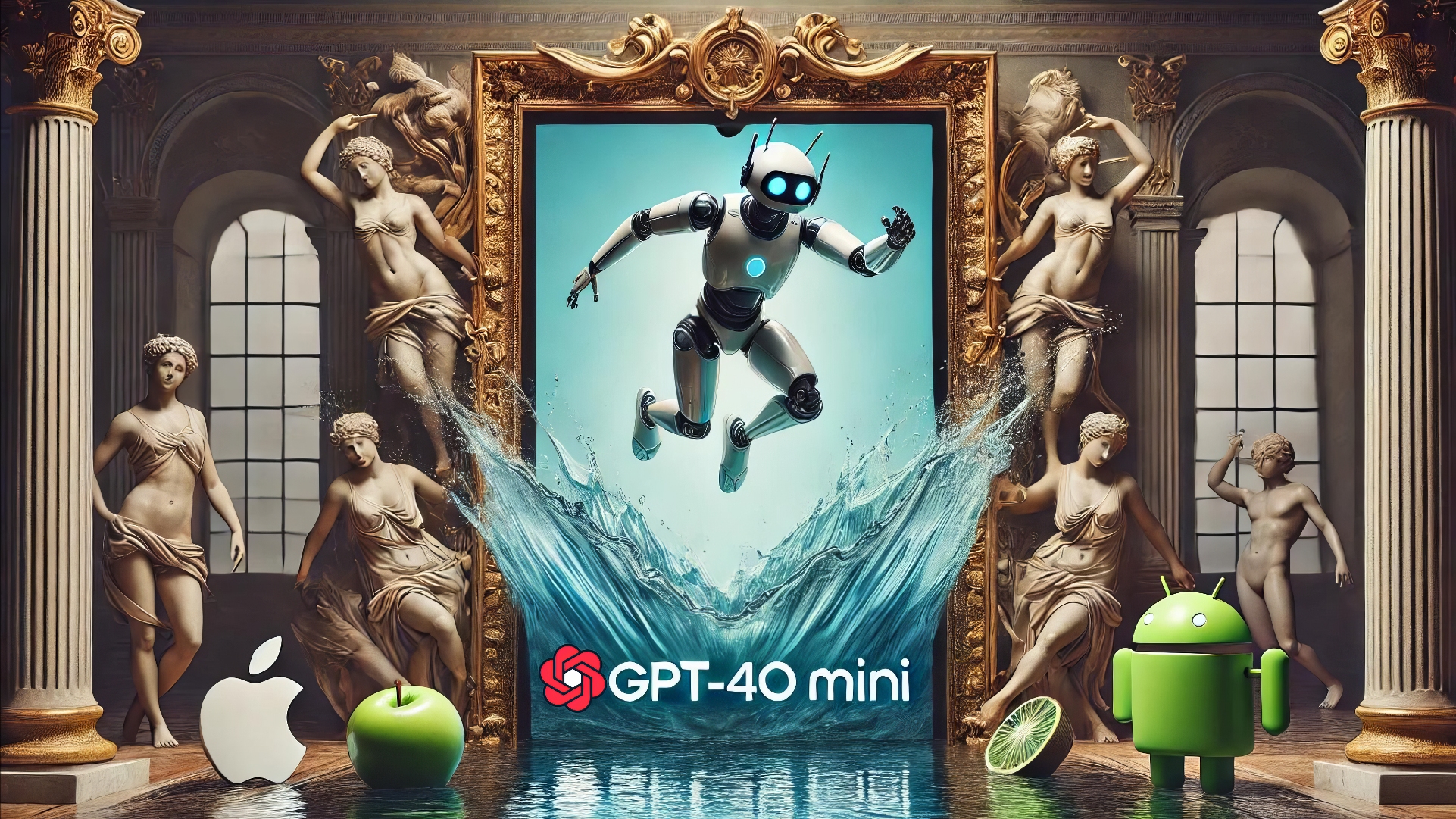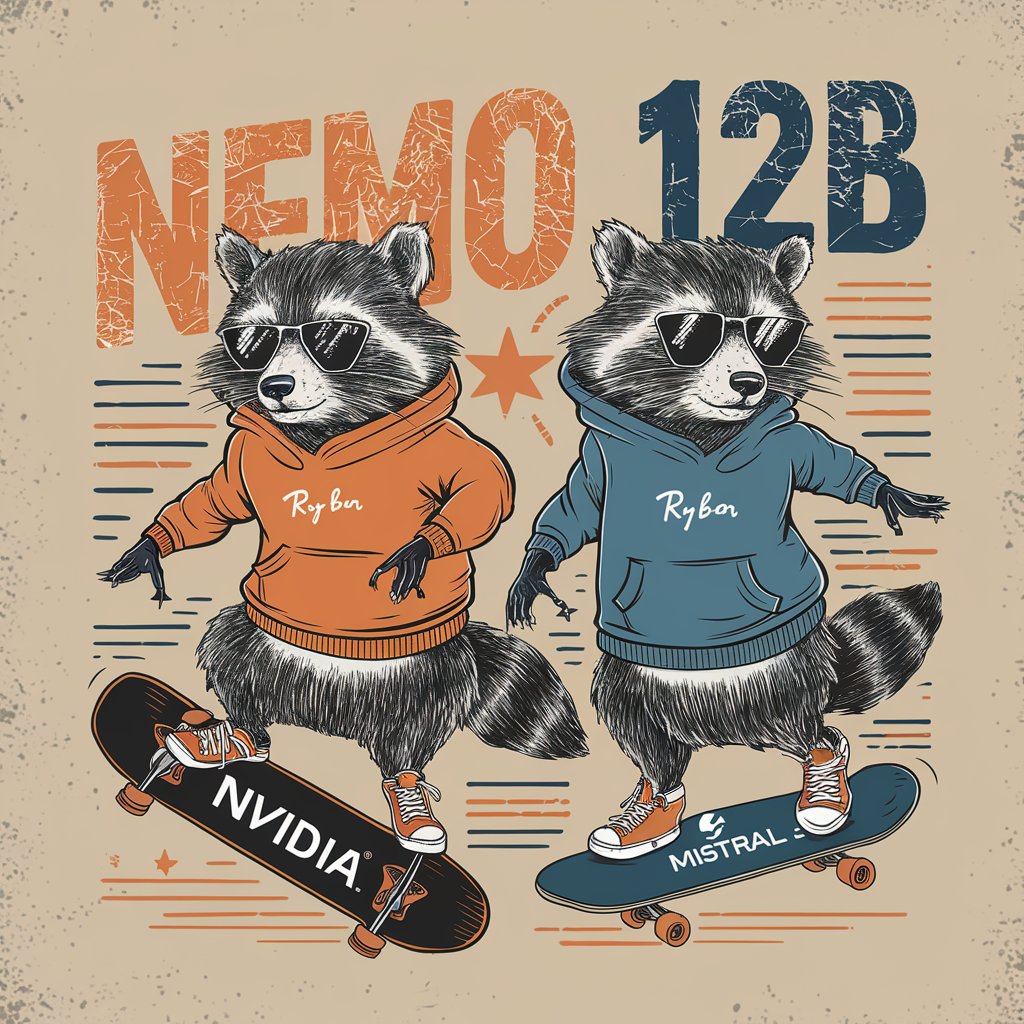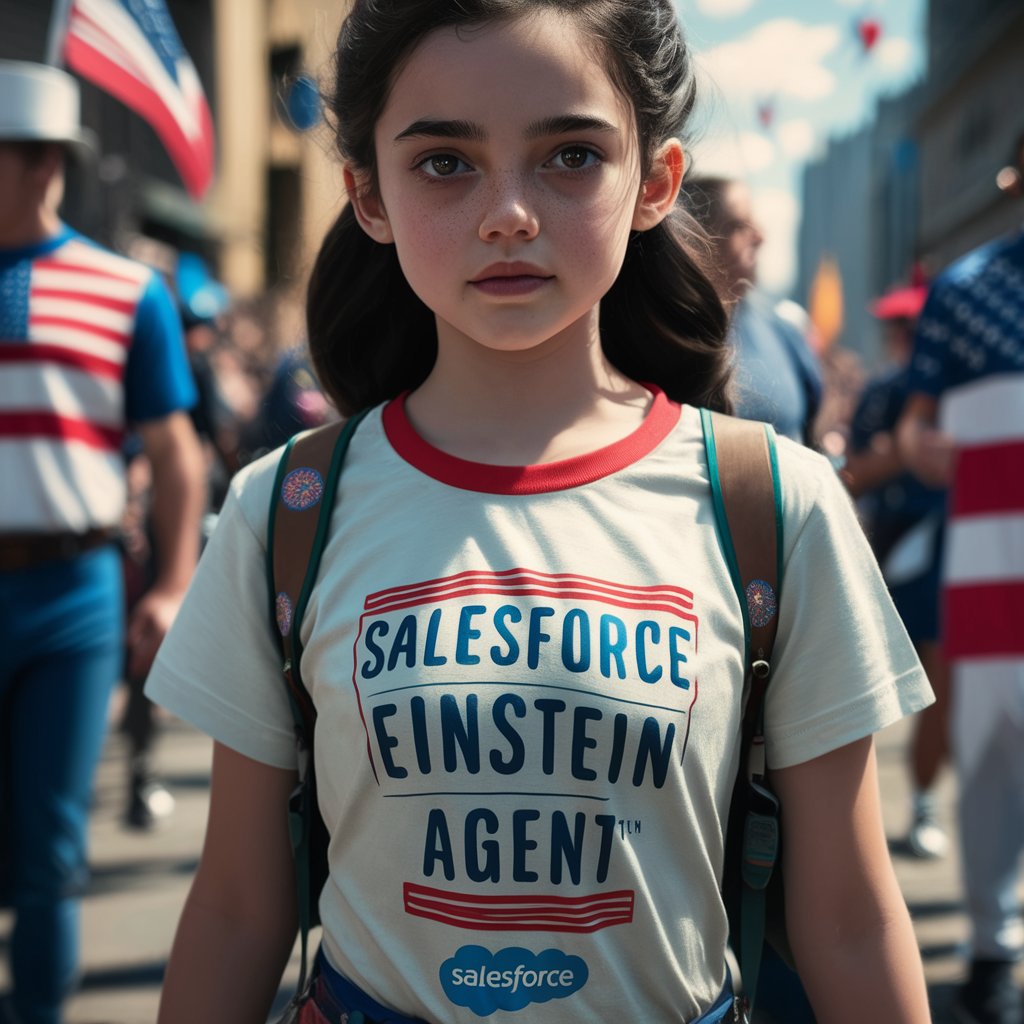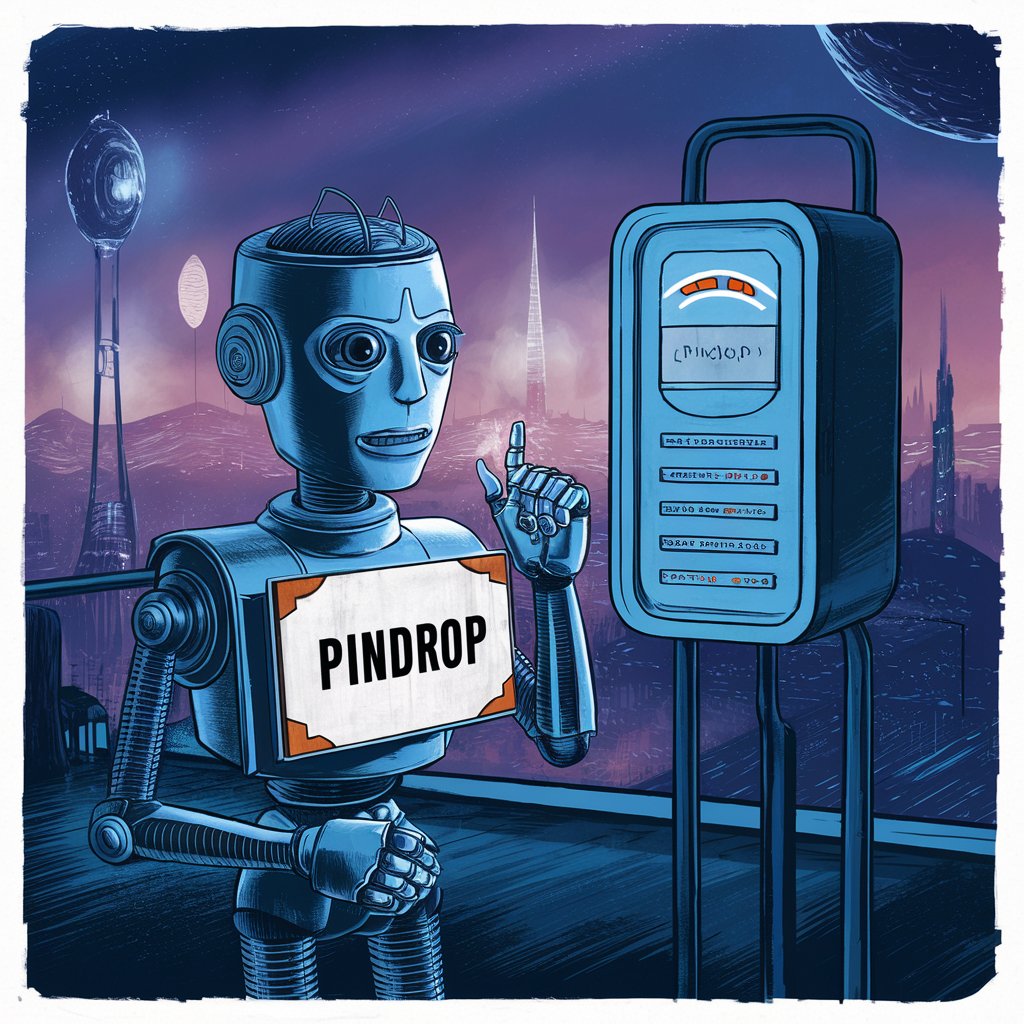
Introducing GPT-4o Mini: Affordable, High-Performance Multimodal AI from OpenAI
Introduction
OpenAI has launched GPT-4o Mini, a new, cost-effective AI model designed to provide advanced capabilities at a significantly lower price. This model aims to expand the accessibility of AI by offering powerful multimodal processing and superior performance compared to its predecessors.
Features
- Multimodal Capabilities: GPT-4o Mini handles both text and vision inputs, making it versatile for a variety of applications.
- Enhanced Performance: It scores 82% on the MMLU benchmark for textual intelligence and reasoning, outperforming other small models such as Gemini Flash and Claude Haiku.
- Superior Coding and Mathematical Reasoning: It excels in mathematical reasoning and coding tasks, with notable high scores in MGSM and HumanEval benchmarks.
Benefits
- Cost Efficiency: Priced at 15 cents per million input tokens and 60 cents per million output tokens, GPT-4o Mini is over 60% cheaper than GPT-3.5 Turbo.
- Broad Accessibility: Available to Free, Plus, and Team users of ChatGPT, as well as enterprise users, enabling a wide range of developers to integrate advanced AI into their applications.
- Safety and Reliability: Incorporates built-in safety measures, including pre-training filtering and reinforcement learning with human feedback, ensuring reliable and secure AI interactions.
Technical Details
- Benchmark Performance: GPT-4o Mini outperforms previous models in various benchmarks. It scored 87% on MGSM (mathematical reasoning) and 87.2% on HumanEval (coding performance). Additionally, it demonstrated strong performance in multimodal reasoning with a score of 59.4% on MMMU.
- Function Calling and Long-Context Handling: Improved capabilities in function calling allow the model to interact with external systems more effectively. Enhanced long-context performance enables better handling of extensive input data.
Summary
GPT-4o Mini represents a significant advancement in AI technology, offering high performance at a fraction of the cost of previous models. Its multimodal capabilities, cost efficiency, and robust safety features make it an attractive option for developers looking to integrate AI into their products. OpenAI’s commitment to reducing costs while enhancing capabilities ensures that AI technology continues to become more accessible and reliable for a wide range of applications.

Mistral Unveils Codestral Mamba: Revolutionizing Code Generation Efficiency
Introduction
Mistral, a French AI startup, has launched Codestral Mamba, a new AI model designed to enhance code generation speed and handle longer inputs efficiently.
Features
- Fast Response Time: Uses the Mamba architecture to improve efficiency over traditional transformer models.
- Extended Context Handling: Capable of managing up to 256,000 tokens.
- Benchmark Performance: Outperforms other open-source models like CodeLlama and DeepSeek in HumanEval tests.
Benefits
- Increased Productivity: Ideal for developers needing quick, reliable code generation for local projects.
- Open Source Access: Available on GitHub and HuggingFace under an Apache 2.0 license.
- Cost Efficiency: Free to use via Mistral’s API.
Technical Details
- Mamba Architecture: Simplifies attention mechanisms for faster inference times.
- Benchmark Scores: Excels in coding tasks, outperforming CodeLlama 7B and other models.
- API Integration: Developers can access and fine-tune the model through Mistral’s la Plateforme.
Summary
Codestral Mamba is set to revolutionize code generation by offering a faster, more efficient model that supports extensive inputs. Its open-source availability and superior performance make it a valuable tool for developers aiming to enhance productivity.

Hugging Face’s smolLM Models: Bringing Powerful AI to Your Phone Without Cloud Dependency
Introduction
Hugging Face has launched smolLM models, a new line of small language models designed to bring powerful AI capabilities directly to mobile devices without the need for cloud computing.
Features
- Compact and Efficient: The smolLM models, including the flagship smolLM-1.7B, are optimized for on-device processing, eliminating the dependency on cloud infrastructure.
- High Performance: These models outperform competitors such as Microsoft’s Phi-1.5, Meta’s MobileLM-1.5B, and Qwen2-1.5B across various benchmarks.
- Versatility: Suitable for a wide range of applications, from natural language processing to real-time data analysis on mobile platforms.
Benefits
- Enhanced Privacy: By processing data locally on the device, smolLM models ensure higher privacy and security for users.
- Reduced Latency: On-device AI processing significantly reduces latency, offering faster response times and improved user experiences.
- Cost Efficiency: Eliminating the need for cloud services reduces operational costs and makes AI technology more accessible for a broader audience.
Technical Details
- Performance Benchmarks: smolLM-1.7B has demonstrated superior performance, surpassing other models in tasks evaluated through HumanEval and other standard benchmarks.
- Availability: The models are available for developers on platforms such as GitHub and Hugging Face’s repository, with full documentation and support for integration into various applications.
- Optimized Architecture: Designed to be lightweight yet powerful, these models leverage advanced techniques to maximize efficiency and performance on limited hardware.
Summary
Hugging Face’s smolLM models represent a significant leap in AI technology, enabling powerful, efficient, and private AI capabilities on mobile devices. These models are set to transform how developers and users interact with AI by providing robust performance without the need for cloud connectivity.

Apple’s New Open AI Models Outperform Mistral and Hugging Face Offerings
Introduction
Apple has introduced a new family of AI models that showcase their advancements in open AI technology, outperforming notable competitors such as Mistral and Hugging Face.
Features
- Model Variants: Includes two core models with 7 billion and 1.4 billion parameters.
- Performance: The 7B model excels with 63.7% accuracy on MMLU and significantly improves efficiency, using 40% less compute compared to predecessors.
- Open Source: Models are fully open source with released weights, training code, and datasets.
Benefits
- High Performance: The models outperform Mistral-7B and other open models like Llama 3 and Google’s Gemma on key benchmarks.
- Accessibility: Available under Apple’s Sample Code License and Apache 2.0, allowing for broad use and modification.
- Advanced Data Curation: Demonstrates the effectiveness of model-based filtering for assembling high-quality training datasets.
Technical Details
- Training: The 7B model is trained on 2.5 trillion tokens, achieving superior performance with a 2K context window.
- Context Length: Extended context length to 8K further improves performance on complex tasks.
- Collaborative Development: Part of the DataComp project involving multidisciplinary researchers and institutions.
Summary
Apple’s new DCLM models represent a significant step forward in AI technology, offering high performance, open-source accessibility, and innovative data curation methods. These models set a new standard for efficiency and effectiveness in AI development.
Other AI News
-
Empowering Enterprises: NVIDIA and Mistral AI Unveil the Mistral NeMo 12B Model for Desktop AI
NVIDIA and Mistral AI have launched the Mistral NeMo 12B, a new language model designed to bring enterprise-grade AI capabilities to desktop computers. This collaboration combines Mistral AI’s expertise in training data with NVIDIA’s advanced hardware and software ecosystem, creating a model with 12 billion parameters and a 128,000 token context window. This model is particularly notable for its ability to run on local hardware, such as NVIDIA RTX GPUs, making it accessible to businesses without relying on extensive cloud resources. The Mistral NeMo 12B supports various applications, including chatbots, multilingual tasks, coding, and summarization, and is released under the Apache 2.0 license, facilitating its integration into commercial environments.
The model’s development emphasizes efficiency and accuracy, with significant improvements in handling large contexts and multi-turn conversations. By allowing businesses to deploy powerful AI on their own systems, Mistral NeMo addresses critical concerns such as data privacy, latency, and cost-effectiveness. This local deployment capability is expected to be particularly advantageous for companies operating in environments with limited internet connectivity or stringent data privacy requirements. The introduction of Mistral NeMo marks a significant shift in AI deployment strategies, potentially leveling the playing field for smaller enterprises to leverage advanced AI technologies that were previously out of reach.
-
Wittaya Aqua’s AI Technology Boosts Seafood Production Efficiency and Sustainability
Wittaya Aqua, a Canada-based startup, has raised $2.8 million in seed funding to advance its data-driven platform designed to enhance aquaculture production. The platform leverages AI and machine learning to provide seafood farmers with insights that can drive greater profitability, sustainability, and efficiency. By consolidating data across the seafood supply chain, Wittaya Aqua offers predictive analytics for animal growth, optimal feed recommendations, and strategies for maximizing crop yields based on real-time and historical data. This innovative approach addresses the traditional inefficiencies of fragmented data in aquaculture, enabling better-informed decision-making for farmers, feed mills, and ingredient suppliers.
The recent funding will facilitate Wittaya Aqua’s expansion into Asia, a leading region for aquaculture production, following its successful entry into Singapore in 2023. The company’s AI-powered platform is unique in that it combines nutritional information with field performance, allowing for precise modeling of the impacts of different feed ingredients on animal growth. This capability, along with its ability to work with multiple species across various geographies, sets Wittaya Aqua apart from other farm management solution providers. The startup’s mission is to revolutionize the aquaculture industry by making it more efficient and sustainable, contributing to the global seafood supply chain.
-
ANSYS, Supermicro, and NVIDIA Collaborate to Revolutionize Multiphysics Simulation with Unprecedented Speed
ANSYS has partnered with Supermicro and NVIDIA to dramatically accelerate multiphysics simulations by up to 1,600 times. This collaboration leverages the high-performance capabilities of NVIDIA’s GPUs, particularly the A100 Tensor Core GPUs, combined with Supermicro’s advanced server technology. These simulations, crucial for industries like aerospace, automotive, and energy, involve complex interactions between various physical phenomena such as fluid dynamics, structural mechanics, and electromagnetics. The partnership aims to provide a turnkey hardware solution that integrates seamlessly with ANSYS’ simulation software, enabling users to achieve significantly faster results and handle more complex models than previously possible.
This breakthrough is achieved through the combined use of NVIDIA’s CUDA software platform and the latest hardware advancements, providing a robust environment for computational scientists and engineers. By reducing the time required for simulations, this collaboration not only enhances productivity but also allows for more iterations in the design process, leading to better optimized and innovative products. The solution is designed to be scalable, supporting large-scale simulations that can be executed efficiently across multiple GPUs. This partnership underscores the ongoing efforts to push the boundaries of computational simulation, making it more accessible and efficient for a wide range of applications.
-
AI Pioneer Andrej Karpathy Launches Eureka Labs, an AI-Native Educational Institution
Andrej Karpathy, a prominent AI researcher and former engineer at OpenAI and Tesla, has announced the launch of Eureka Labs, a new AI-native educational institution. Eureka Labs aims to integrate artificial intelligence into the core of its teaching methodologies, providing students with an immersive learning experience driven by advanced AI technologies. The school will offer a curriculum designed to foster innovation and practical skills in AI, preparing students for future roles in the rapidly evolving tech landscape.
Eureka Labs represents a significant shift in educational approaches, utilizing AI not only as a subject of study but also as a tool to enhance the learning process itself. The initiative is expected to attract a diverse group of students interested in pioneering the application of AI in various fields. This launch underscores the ongoing efforts to adapt education to meet the demands of an AI-driven world, emphasizing hands-on learning and real-world applications of AI technology.
-
Cohere and Fujitsu Unveil ‘Takane’: A Japanese LLM for Enterprise Applications
Cohere has partnered with Fujitsu to launch a new Japanese language large language model (LLM) named Takane, aimed at enhancing enterprise applications. Takane is designed to cater to the unique linguistic and cultural nuances of the Japanese language, providing businesses with advanced AI capabilities tailored specifically for their needs. Fujitsu will serve as the exclusive provider of these models and related services, ensuring that enterprises can seamlessly integrate Takane into their operations. This collaboration is expected to significantly boost productivity and innovation in various sectors by leveraging the power of AI to handle complex language tasks.
The introduction of Takane marks a strategic move to expand AI applications in the Japanese market, where demand for localized AI solutions is growing. This LLM is built to support a wide range of enterprise functions, from customer service automation to sophisticated data analysis, all while maintaining high standards of accuracy and efficiency. The partnership between Cohere and Fujitsu highlights a commitment to providing robust, localized AI tools that can drive digital transformation across industries in Japan.
-
Huma Secures $80M to Revolutionize Healthcare with Generative AI-Powered Apps
Huma has raised $80 million in a funding round to advance its mission of transforming healthcare through generative AI. This substantial investment brings the company’s total capital to over $300 million. Huma aims to utilize this funding to develop AI-driven applications that can convert text into healthcare solutions, streamlining processes and enhancing patient care. By leveraging generative AI, Huma plans to create tools that can assist in various healthcare functions, such as diagnostics, patient monitoring, and personalized treatment plans, thus improving the overall efficiency and effectiveness of healthcare delivery.
This funding round was led by prominent investors who recognize the potential of AI to revolutionize healthcare. Huma’s generative AI technology is designed to process large volumes of healthcare data, providing insights and automating tasks that traditionally require significant manual effort. The company’s innovative approach promises to address critical challenges in the healthcare industry, such as reducing administrative burdens and enhancing the accuracy of medical diagnoses. This investment will enable Huma to scale its operations and further develop its AI capabilities, positioning the company at the forefront of the digital health revolution.
-
Anthropic Launches Claude on Android: A New Challenger to ChatGPT?
Anthropic has launched its AI chatbot, Claude, on Android, positioning it as a strong competitor to OpenAI’s ChatGPT. Claude, powered by the Claude 2 language model, is designed to handle extensive text inputs, delivering coherent and contextually relevant responses. The app emphasizes safety and alignment with human values, leveraging “constitutional AI” to guide its behavior. This feature aims to make Claude more reliable and ethically sound compared to other chatbots.
The Android launch of Claude marks a strategic expansion for Anthropic, directly challenging ChatGPT’s market presence. Claude’s subscription service, Claude Pro, offers enhanced features, including faster access and advanced functionalities during peak times. Priced similarly to ChatGPT Plus, Claude Pro aims to attract users with its capacity for summarizing large texts and maintaining high performance. This development intensifies the competition in the AI chatbot market, with both services continuously improving to capture user interest and loyalty.
-
Vectara Secures $25M Series A Funding to Launch Mockingbird LLM for Enterprise RAG Applications
Vectara has raised $25 million in Series A funding to support the launch of its new language model, Mockingbird, specifically designed for enterprise Retrieval Augmented Generation (RAG) applications. Mockingbird aims to enhance enterprise search and data retrieval by leveraging advanced AI to provide more accurate and contextually relevant information. This model integrates seamlessly into existing enterprise systems, enabling businesses to efficiently manage and utilize large volumes of data.
The funding round highlights the growing demand for sophisticated AI solutions in the enterprise sector. Vectara’s Mockingbird LLM promises to revolutionize how companies interact with their data, offering capabilities such as improved search accuracy, faster information retrieval, and better data insights. By focusing on RAG technology, Vectara aims to help businesses overcome common data management challenges and drive innovation across various industries.
-
OpenAI Enhances Enterprise Control Over ChatGPT for Compliance and Security
OpenAI has introduced new features for its ChatGPT Enterprise offering, giving businesses more control over their AI usage, especially concerning compliance and data security. These enhancements include the Enterprise Compliance API, which allows companies to better manage and audit their AI interactions, ensuring they meet regulatory requirements. Additionally, OpenAI has implemented stricter data handling protocols to ensure enterprise data is not used to train its models, addressing common concerns about data privacy and security.
Since its launch in late August 2023, ChatGPT for Enterprise has attracted over 260 business customers with more than 150,000 active users. This growth highlights the increasing demand for advanced AI tools in the corporate sector. The new control features are designed to make ChatGPT more appealing to enterprises by offering greater customization and security, helping businesses integrate AI more seamlessly into their operations. These updates also reflect OpenAI’s commitment to addressing enterprise needs and maintaining its competitive edge in the AI market.
-
Arrcus Raises $27M to Advance Hyperscale Networking Solutions
Arrcus has secured $27 million in a Series B funding round to further develop its hyperscale networking software. This investment will be used to enhance Arrcus’s ArcOS platform, which is designed to provide scalable, high-performance networking solutions for data centers and telecommunications providers. The funding round was led by Prosperity7 Ventures, with participation from existing investors including Clear Ventures and General Catalyst. Arrcus aims to address the increasing demand for efficient, scalable networking solutions as data consumption and network traffic continue to grow rapidly.
The new capital will help Arrcus expand its market reach and accelerate innovation in networking technologies. Their ArcOS platform offers a flexible and programmable network operating system that supports various use cases, from core to edge networks. This funding underscores the importance of advanced networking infrastructure in supporting modern digital transformation efforts across industries, enabling more efficient and reliable data management and connectivity solutions.
-
Live2Diff AI Revolutionizes Real-Time Video Stylization for Instant Artistic Transformations
Live2Diff, a cutting-edge AI technology, enables real-time video stylization, transforming live video streams into artistically enhanced content instantly. Developed by a team of international researchers, Live2Diff can apply various artistic styles to video footage as it is being recorded, offering a new dimension in video editing and content creation. This AI system uses advanced algorithms to process and reimagine live video, providing users with a seamless way to create visually stunning videos on the fly.
The technology behind Live2Diff showcases significant advancements in AI’s ability to handle complex video processing tasks efficiently. It holds promise for various applications, including entertainment, marketing, and social media, where instant video stylization can enhance viewer engagement and creativity. By bringing this capability to the forefront, Live2Diff is set to revolutionize the way video content is produced and consumed, making high-quality, stylized videos accessible to a broader audience.
-
Briefly Bio Secures $1.2M to Develop GitHub-Like Platform for Scientific Experiments
Briefly Bio, a London-based startup, has raised $1.2 million in seed funding to create a collaborative platform for scientific experiments, akin to GitHub for software development. This platform aims to streamline the sharing, replication, and validation of scientific research by providing a centralized repository for experimental data and methodologies. The funding, led by Compound VC, will support the development of tools to enhance transparency and reproducibility in science, addressing critical challenges in research integrity and collaboration.
The platform will enable scientists to upload their experiments, share protocols, and collaborate with peers globally, fostering an open and collaborative research environment. By offering a structured and accessible way to document and share scientific experiments, Briefly Bio aims to accelerate innovation and ensure research findings are more reliable and verifiable. This initiative represents a significant step towards improving the efficiency and effectiveness of scientific research through enhanced digital tools.
-
Adaptive Raises $19M to Revolutionize Construction Payments with AI-Driven Automation Tools
Adaptive, a fintech startup, has secured $19 million in Series A funding to develop and scale its AI-powered financial platform for the construction industry. The funding round, led by Emergence Capital with participation from Andreessen Horowitz and other investors, brings Adaptive’s total capital raised to $26.4 million. Adaptive aims to address chronic payment delays and cash flow issues in the $2 trillion construction industry by automating financial management processes. The platform offers end-to-end solutions including budgeting, cash flow analytics, expense tracking, accounts payable, accounts receivable, vendor management, and electronic payments, designed specifically for small to medium-sized construction companies.
The funding will support the expansion of Adaptive’s engineering and product teams and enhance its market reach across the United States. Since its launch in February 2023, Adaptive has rapidly grown, now serving over 280 construction companies managing more than $1.4 billion in project volume. By leveraging AI and automation, Adaptive provides real-time financial insights and predictive analytics, helping construction firms streamline back-office operations, improve cash flow, and accelerate payment processes. This innovation aims to set new standards in financial management within the construction sector, ultimately reducing project costs and increasing efficiency.
-
Salesforce Introduces Einstein Service Agent for Enhanced Customer Self-Service
Salesforce has unveiled its new AI-powered customer service tool, the Einstein Service Agent, designed to revolutionize customer self-service. This advanced AI agent integrates with Salesforce’s existing platform to provide real-time, conversational assistance to end-users. The Einstein Service Agent can handle a wide range of customer inquiries, offering solutions and support without the need for human intervention. This innovation aims to improve customer experience by providing instant, accurate responses and reducing the workload on human customer service representatives.
The introduction of the Einstein Service Agent reflects Salesforce’s commitment to leveraging AI to enhance business operations. By enabling more efficient customer interactions, businesses can expect increased satisfaction and loyalty from their clients. Additionally, the Einstein Service Agent’s ability to learn and adapt over time ensures that it remains effective in addressing evolving customer needs. This launch underscores Salesforce’s strategic focus on integrating AI technologies to drive operational efficiency and customer engagement.
-
UK Antitrust Authorities Investigate Microsoft Over Inflection AI Hires
The UK Competition and Markets Authority (CMA) has initiated an antitrust probe into Microsoft’s hiring of key personnel from Inflection AI, a move that has raised concerns about potential anti-competitive practices. Inflection AI, an OpenAI rival, had previously received investment from Microsoft, leading to scrutiny over the implications of these hires. The CMA’s investigation will determine if this constitutes a “quasi-merger” and if it could harm competition in the AI sector in the UK. The probe could advance to a more in-depth phase if initial findings suggest significant competitive risks.
This inquiry is part of broader regulatory efforts to monitor major tech companies’ strategies in acquiring startups and talent, aiming to ensure fair competition. The CMA has until September to decide on further action, which could lead to a prolonged examination if necessary. This move follows similar investigations into other tech giants and their AI partnerships, reflecting growing regulatory attention on the tech industry’s consolidation trends.
-
Exa Secures $17M Funding to Develop AI-Optimized Search Engine
Exa, a startup aiming to revolutionize AI search capabilities, has secured $17 million in Series A funding from prominent investors including Lightspeed, Nvidia, Y Combinator, and Google. Exa’s innovative technology focuses on predicting the next web link instead of the next word, offering a more efficient and tailored search experience for AI platforms. Initially designed to improve human search experiences, Exa pivoted its focus post-ChatGPT to better serve AI applications, gaining significant traction among developers.
The funding will support Exa in further developing its search engine, which has already attracted notable users like Databricks, leveraging its API for finding training data. The tool is available in free and tiered-fee versions, catering to thousands of developers. This strategic shift highlights the growing demand for specialized AI tools that enhance data retrieval and processing, positioning Exa as a key player in the AI search engine market.
-
YouTube Music Tests AI-Generated Radio and Unveils New Song Recognition Feature
YouTube Music is rolling out two new features designed to enhance user experience and song discovery on its platform. The first is an AI-generated conversational radio feature that allows users to create custom radio stations by describing their music preferences. For instance, users can request playlists with “catchy pop choruses” or “upbeat pop anthems,” and the AI will generate a personalized radio station accordingly. This feature is currently available to select Premium users in the U.S., with plans for broader availability in the future. This innovation is part of a growing trend among music streaming services like Spotify, Amazon Music, and Deezer, which are also exploring AI-driven playlist generation tools.
The second feature is a new song recognition tool that enables users to identify songs by singing, humming, or playing parts of them. This tool, which goes beyond traditional song recognition apps like Shazam, allows users to find songs even if they can’t remember the lyrics or have only a fragment of the melody. Initially tested with a select group of Android users, this feature is now being rolled out to all users across iOS and Android platforms. These updates underscore YouTube Music’s commitment to integrating AI to provide a more intuitive and interactive user experience.
-
Bird Buddy Unveils AI Feature to Name and Identify Individual Birds
Bird Buddy, a Michigan-based startup, has introduced an innovative AI feature called “Name That Bird,” which allows users to identify and name individual birds visiting their smart feeders. Utilizing high-resolution cameras and AI technology, the feature recognizes unique characteristics of each bird, enabling users to form personal connections with their frequent feathered visitors. This AI-driven identification system can notify users when a specific bird returns, enhancing the bird-watching experience by allowing enthusiasts to track and name their favorite birds, such as naming a Northern Cardinal “Bob” and receiving alerts when Bob revisits.
This new feature is part of Bird Buddy’s comprehensive AI suite called Natural Intelligence, which also includes capabilities to detect injured or sick birds and alert users about the presence of non-bird animals like raccoons and butterflies. Available as part of the Bird Buddy Pro subscription for $6 per month, these features are designed to deepen user engagement with nature while providing valuable data for bird conservation efforts. The advanced capabilities of Bird Buddy’s feeders, coupled with AI technology, offer a unique and enriching experience for bird enthusiasts.
-
Google in Talks to Acquire Wiz Amidst AI Investment and Revenue Discrepancy
In a recent episode of the Equity podcast, Rebecca Bellan discusses Google’s ongoing negotiations to acquire Wiz, a cloud security company, for approximately $23 billion. Wiz’s technology integrates data from major cloud providers like AWS, Azure, and Google Cloud to identify security risks, which could bolster Google’s cloud security offerings. This acquisition is seen as part of Google’s strategy to enhance its cloud services, which reported a 28% growth in Q1 2024.
The podcast also delves into the broader issue of the disparity between AI investment and revenue. In the first half of 2024, over $35.5 billion was invested in AI startups, yet the actual revenue generated from AI remains uncertain and potentially overestimated. Experts caution that the current investment surge might lead to a bubble, given the slow realization of AI’s promised benefits. This gap underscores the challenges and speculative nature of AI investments, highlighting the need for tangible returns on the massive funds being funneled into the sector.
-
Deezer Launches AI Playlist Generator to Compete with Spotify and Amazon Music
Deezer has introduced its own AI-powered playlist generator, joining the ranks of Spotify and Amazon Music in leveraging artificial intelligence to enhance user experience. This new feature allows users to create personalized playlists based on their preferences, similar to the AI DJ feature already available on Spotify. Deezer’s AI playlist generator uses machine learning algorithms to analyze listening habits and suggest tracks that match users’ tastes, aiming to provide a highly customized music streaming experience. This move is part of Deezer’s broader strategy to compete more effectively with leading music streaming services and attract a larger user base.
The introduction of AI-driven playlist generation is a significant step for Deezer as it strives to keep up with industry giants like Spotify and Amazon Music. These features not only enhance user engagement by offering tailored music recommendations but also help streaming platforms retain users by continuously adapting to their evolving musical preferences. As AI technology becomes increasingly integral to music streaming services, Deezer’s adoption of AI for personalized playlists reflects a growing trend towards more intelligent and intuitive user experiences in the digital music space.
-
Samsung Acquires Oxford Semantic Technologies to Enhance AI Capabilities
Samsung Electronics has announced its acquisition of Oxford Semantic Technologies, a UK-based startup specializing in knowledge graph technology. Founded in 2017 by Oxford University professors, the startup has developed an AI engine called RDFox, which optimizes data processing and enables advanced reasoning both in the cloud and on-device. This technology will be integrated into Samsung’s products, including mobile devices, televisions, and home appliances, to offer more sophisticated and personalized AI solutions. The knowledge graphs created by Oxford Semantic Technologies collect and interconnect data in a way that mirrors human cognitive processes, thereby enhancing Samsung’s ability to provide hyper-personalized user experiences while ensuring data security on the device.
This acquisition is part of Samsung’s broader strategy to improve its AI offerings by securing advanced technologies that enhance user interactions with its products. By incorporating knowledge graph technology, Samsung aims to better understand how users interact with their devices and improve recommendation systems. The collaboration between Samsung and Oxford Semantic Technologies has been ongoing since 2018, with Samsung Ventures previously investing £3 million in the startup. The acquisition is expected to further boost Samsung’s capabilities in knowledge engineering, making its AI-driven personalization features more robust and effective across its device ecosystem.
-
Artificial Agency Raises $16M to Revolutionize Video Game NPCs with AI
Artificial Agency, a startup founded by former Google DeepMind researchers, has raised $16 million in a seed funding round to enhance the realism of non-playable characters (NPCs) in video games using AI. The company’s AI behavior engine allows NPCs to respond dynamically to player actions based on a set of motivations, rules, and goals, making interactions more realistic and varied. This technology can be integrated into existing games or used as the foundation for new ones, promising to significantly advance the gaming experience by 2025.
The funding round was led by Radical Ventures and Toyota Ventures, with participation from Flying Fish, Kaya, BDC Deep Tech, and TIRTA Ventures. The company’s AI-driven approach moves away from traditional decision trees and scripted dialogues, enabling NPCs to perform complex, unscripted actions. Artificial Agency is already working with several notable AAA game studios to implement this technology, aiming to make dynamic NPC interactions a standard feature in the gaming industry.
-
TTT Models: The Next Big Leap in Generative AI Technology
The generative AI field, traditionally dominated by transformer models, may soon experience a significant shift with the introduction of Test-Time Training (TTT) models. Developed by researchers from Stanford, UC San Diego, UC Berkeley, and Meta, TTT models aim to address some of the key limitations of transformers, such as their inefficiency in processing vast amounts of data and high computational demands. Unlike transformers, which rely on a hidden state that grows with data processing, TTT models use an internal machine learning model that encodes data into representative variables called weights. This approach enables TTT models to handle large datasets more efficiently without increasing in size, potentially revolutionizing data processing in AI applications.
The potential of TTT models is substantial, as they promise improved scalability and efficiency, making them suitable for handling diverse types of data, including text, images, and videos. However, their practical implementation and comparison with existing transformer models are still in the early stages. Researchers are optimistic but cautious, recognizing that while TTT models could surpass transformers in performance, more extensive testing and development are necessary. This exploration of new AI architectures highlights a broader trend in AI research, seeking breakthroughs that could democratize generative AI and expand its applications across various industries.
-
Microsoft Launches AI-Powered Designer App on iOS and Android
Microsoft has officially launched its AI-powered design app, Designer, on iOS and Android. This app, comparable to Canva, allows users to create a wide range of designs, such as social media posts, invitations, and promotional materials. Designer leverages AI to provide design suggestions and automate the creative process, making it accessible to users with varying levels of design expertise. The app includes features like prompt templates to help users start their projects quickly and efficiently.
The release of Designer on mobile platforms is part of Microsoft’s strategy to enhance its suite of productivity tools with AI capabilities, aiming to compete with popular design apps like Canva. This move highlights the growing trend of integrating AI into creative applications, offering users more intuitive and efficient ways to create visually appealing content. As AI technology continues to evolve, Microsoft’s Designer app represents a significant step in making sophisticated design tools more accessible to a broader audience.
-
Tribe AI Raises $3.25M to Expand AI Talent and Consulting Services After Six Years of Bootstrapping
Tribe AI, a startup specializing in connecting companies with AI talent and providing AI consulting services, has raised $3.25 million in seed funding after six years of bootstrapping. The funding round, led by Indie.vc’s Bryce Roberts, will enable Tribe AI to scale its operations and meet the growing demand for AI expertise. The company helps businesses leverage advanced AI technologies by providing access to skilled professionals who can address complex challenges and drive innovation across various sectors.
This infusion of capital marks a significant milestone for Tribe AI, allowing it to expand its reach and enhance its service offerings. The startup’s platform facilitates the matching of AI experts with companies needing specialized skills, making AI more accessible and applicable to diverse industry needs. With the new funding, Tribe AI aims to further develop its platform and increase its impact on the AI consulting market, providing businesses with the necessary tools and talent to implement cutting-edge AI solutions.
-
Menlo Ventures and Anthropic Launch $100M Anthology Fund to Back AI Startups
Menlo Ventures and Anthropic have announced the creation of the Anthology Fund, a $100 million venture aimed at supporting early-stage AI startups. This fund is designed to invest in pre-seed and Series A companies that are developing innovative AI technologies. The partnership combines Menlo Ventures’ extensive venture capital experience with Anthropic’s deep expertise in AI, aiming to identify and nurture promising AI startups that can drive significant advancements in the field.
The Anthology Fund represents a strategic move to bolster the AI ecosystem by providing financial resources and mentorship to emerging companies. The initiative underscores the increasing importance of AI in various industries and the need for substantial investment to bring groundbreaking AI solutions to market. By focusing on early-stage investments, Menlo Ventures and Anthropic hope to foster a new generation of AI-driven innovations that can have a transformative impact on technology and society.
-
Pindrop Secures $100M Loan to Expand Deepfake Detection Capabilities
Pindrop, a leader in voice authentication and security, has secured a $100 million loan from Hercules Capital to enhance its deepfake detection technology. This funding will support the further development of Pindrop’s AI-driven solutions, which are critical in detecting and mitigating the risks associated with synthetic audio and deepfake attacks. The company aims to use this loan to improve its fraud prevention tools and expand its offerings in various sectors, including banking, finance, and healthcare. This investment comes at a crucial time as the prevalence of deepfake incidents has surged by 245% from 2023 to 2024.
With this significant financial boost, Pindrop is set to enhance its voice security solutions and address the growing threat of AI-generated deepfakes. The company’s technologies are designed to protect businesses and consumers by accurately identifying fraudulent audio and ensuring the integrity of voice communications. This expansion will enable Pindrop to provide more robust security measures, helping organizations safeguard their operations against increasingly sophisticated cyber threats. The $100 million funding marks a pivotal step in Pindrop’s mission to fortify digital security through advanced AI and voice technology.
About The Author

Bogdan Iancu
Bogdan Iancu is a seasoned entrepreneur and strategic leader with over 25 years of experience in diverse industrial and commercial fields. His passion for AI, Machine Learning, and Generative AI is underpinned by a deep understanding of advanced calculus, enabling him to leverage these technologies to drive innovation and growth. As a Non-Executive Director, Bogdan brings a wealth of experience and a unique perspective to the boardroom, contributing to robust strategic decisions. With a proven track record of assisting clients worldwide, Bogdan is committed to harnessing the power of AI to transform businesses and create sustainable growth in the digital age.











Leave A Comment